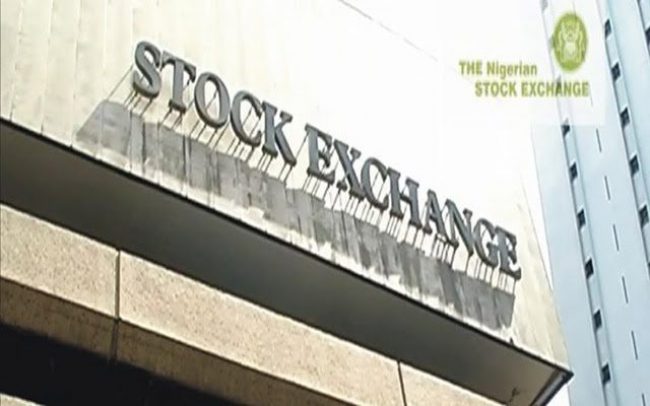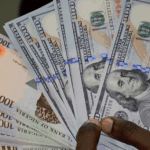

Investors in Nigerian equities suffered net loss of about N1.35 trillion in February as global anxiety over the outbreak of Coronavirus COVID-19 and national macroeconomic uncertainties resulted in flight to safety.
Benchmark indices for Nigerian equities closed weekend with average decline of 9.11 per cent for last month, equivalent to net capital depreciation of N1.35 trillion.
The steep decline in February wiped away net capital gain of N966.7 billion that accrued in January 2020, leaving investors with net capital depreciation of 2.33 per cent or N301.9 billion for the two-month period.
Despite the onset of earnings season, the release of steady corporate earnings and dividends by many corporates and the general undervaluation of Nigerian equities, investors’ appetite remained low throughout the month.
Analysts agreed that weak macroeconomic outlook and the susceptibility of the Nigerian economy to domestic and global risks of Coronavirus were the major drawbacks of the Nigerian equities market.
Nigeria at the weekend recorded its first case of Coronavirus, heightening the tension in the domestic equities market.
Nigerian equities recorded their worst weekly performance in 10 months last week with a net loss of N610 billion in the five-day trading session.
Astute investment banker, Mr. Atedo Peterside said investors were anxious about possible devaluation of Naira and as such were taking safety in short term bet on foreign currency as a hedging strategy.
Senior Research Analyst, FXTM, Lukman Otunuga, at the weekend said the dramatic and fast-moving consequences of the Coronavirus COVID-19 outbreak threaten Nigeria’s economic outlook.
According to him, Nigeria is vulnerable to the spread of the COVID-19 virus in economic and health terms because China- one of its main trading partners, is the epidemic’s epicenter.
Nigeria’s crude Oil exports to China fell in February amid weaker oil prices as the outlook for global oil demand weakens.
He noted that Nigeria’s first quarter Gross Domestic Products (GDP) remains exposed to external uncertainties including weaker oil prices, the Coronavirus COVID-10 outbreak, slowing growth in China and the global economy, pointing out that the World Health Organisation (WHO) had identified Nigeria as one of its top 13 priority countries because of the direct links and travel volume to-and-from China.
Read Also: Police Track ‘Missing’ Person’s Phone To Celestial Pastor
Analysts at Cordros Securities called for cautious trading in equities amidst continued weak market sentiments, advising investors to take positions only fundamentally strong companies.
The All Share Index (ASI)- the value-based common index that tracks all share prices at the Nigerian Stock Exchange (NSE), closed weekend at 26,216.46 points as against 27,388.62 points and 28,843.53 points recorded at the beginning of the week and month respectively.
The ASI had opened 2020 at 26,842.07 points.
These indicated average decline of 4.28 per cent for the immediate past week.
Aggregate market capitalisation of all quoted equities at the NSE dropped to a low of N13.658 trillion at the weekend compared with N14.268 trillion and N14.857 trillion recorded at the beginning of the week and month respectively.
It had opened the year at N12.958 trillion.
The performance of the market capitalisation was moderated by the listing of additional shares during the period, especially the listing of BUA Cement.
Sectoral analysis indicated that most investors might have suffered above average losses, especially in the banking, insurance and consumer goods sectors.
The NSE 30 Index, which tracks the 30 most capitalised stocks at the Exchange, closed weekend with average decline of 4.68 per cent, 9.95 per cent and 2.53 per cent for the week, month and the two-month period respectively.
The NSE Banking Index declined by 11.79 per cent last week to worsen its February return to -15.59 per cent. It ended the two-month period with average decline of 11.59 per cent.
Also, the NSE Insurance Index dropped by 8.22 per cent last week to close the month with a net return of -11.89 per cent. Average year-to-date return in the insurance sector stood at -7.57 per cent.
The NSE Consumer Goods Index was the worst hit on the aggregate with average year-to-date return of -22.74 per cent. It lost 3.84 per cent last week to increase February’s return to -18 per cent.
The NSE Oil and Gas Index dipped by 2.14 per cent, 6.97 per cent and 10.87 per cent in the immediate past week, February and two-month period respectively. However, the NSE Industrial Goods Index appreciated by 1.08 per cent last week to moderate its February’s return to -1.28 per cent.
Average return in the industrial goods sector for the two-month period remains positive at 12.92 per cent.
Global stock markets also crashed to their worst weekly performance since the 2008 global financial crisis as concerns mounted over the rapid spread of Coronavirus.
United States of America’s benchmarks- Dow Jones Industrial Average (DJIA) and Standards and Poors slumped by 11.1 per cent and 10.8 per cent respectively. United Kingdom’s FTSE 100 declined by 10.8 per cent. Japan’s Nikkei 225 Index dropped by 9.6 per cent while China’s CSI 300 Index declined by 5.0 per cent.
Europe’s Euro Stoxx Index depreciated by 11.6 per cent. The MSCI EM Index, which tracks emerging markets, dropped by 4.9 per cent while the MSCI FM Index, which tracks frontier markets, declined by 2.6 per cent.
Investors in Nigerian equities netted N966.7 billion in January 2020, raising hopes that the market might witness a recovery this year after two consecutive years of negative returns.
The market had recorded negative average full-year return of -14.60 per cent for the 2019 trading year, equivalent to net capital depreciation of N1.71 trillion for the year.
It had recorded negative average full-year return of -17.81 per cent in 2018. The ASI, which doubles as Nigeria’s sovereign equities index, had closed 2018 at 31,430.50 points, down from 38,243.19 points recorded as closing index in 2017.
The 2019 pricing performance marked the fifth negative closing in six consecutive years.
The only positive performance in six years was in 2017 when the market recorded a positive return of 42.3 per cent, widely regarded as one of the highest global returns for the year.
Most analysts remained cautious about the short-term outlook for Nigerian equities, after the two-year consecutive decline.
Analysts at United Capital Plc projected that Nigerian equities may deliver a modest average return of some 5.3 per cent in 2020, although the overall market outlook remains susceptible to external shocks and domestic policies.
Report by By Taofik Salako, The Nation Newspaper





















